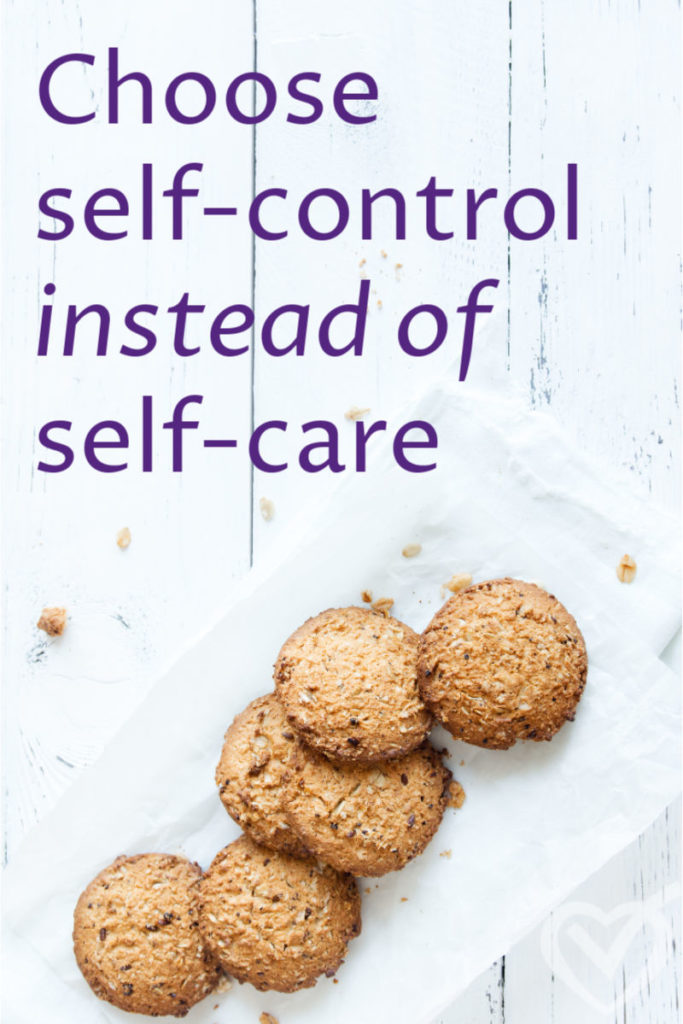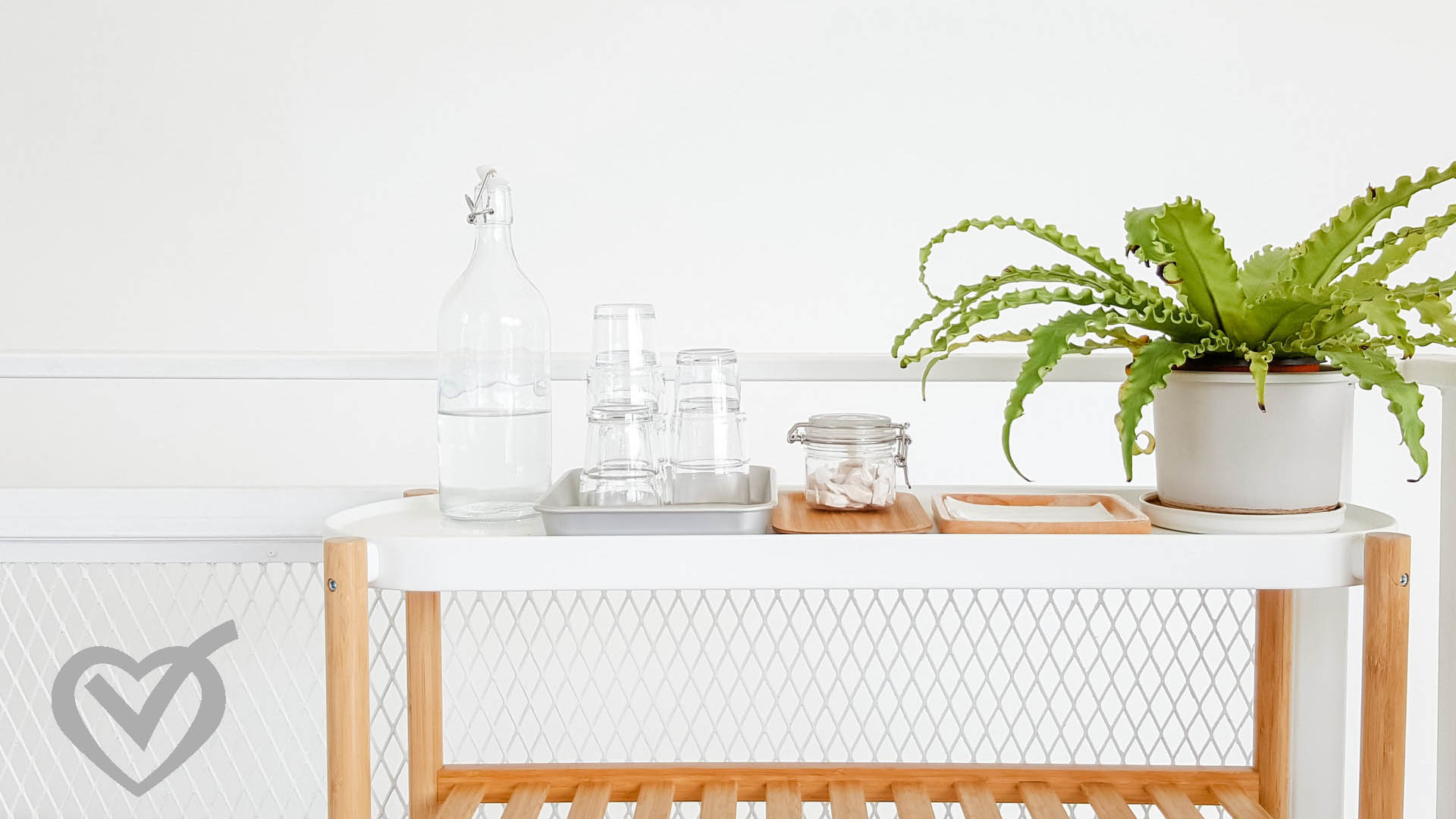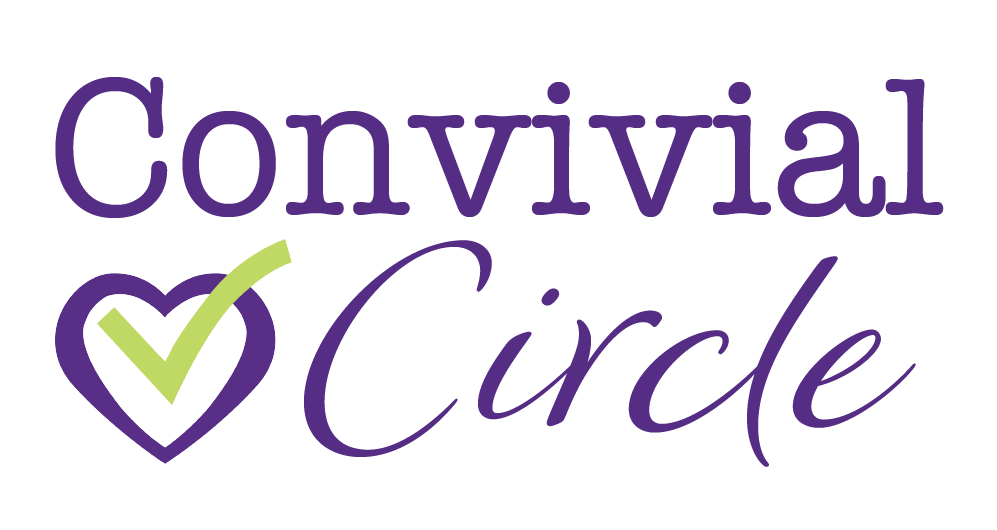If there’s anyone who needs self-care, it’s stay at home moms, right?
The other day as I stared into the empty bottom of my coffee mug, a movie quote jumped to mind: “I don’t want to see the bottom of this glass,” uttered desperately. It’s an early scene in Mask of Zorro, before the drunk vagabond is chosen by the master for a transformation.
We’re like the drunk vagabond. We want a transformation. We want a different sort of a life. But we also don’t want to see the bottom of our glass. We don’t want to give anything up. We don’t want to be forced to do anything we don’t like.
Listen to this episode:

The flawed self-care marketing tactic
When terms used to clarify things for a particular group go mainstream, co-opted by hashtags and memes, no one (except the marketers) are served.
Self-care is one such term. We ought to be teaching our children to care for themselves and not need permanent nannies. We ought to care in particular ways for those who can’t care for themselves. Both assume the fact that self-care is a thing: it’s tending to your basic needs. Caretakers and those in highly needy situations, particularly on mission fields, need respite. After caring extensively and under extreme circumstances for the basic needs of others, caring for their own basic needs is the easiest thing to cut.
But when we see self-care in the media, on Instagram, in the memes, and hashtagged, those are not the demographics talking or listening.
Rather, self-care is the catch-all term to justify and even demand respite, escape, treats, indulgence. After all, life is exhausting and people are annoying. You deserve time off.
However, this is a fundamental misunderstanding of the actual need of the moment, of what we actually do deserve, and what will actually restore and renew us when we’re tired. Moreover, it’s a misappropriation of the term self-care that steals it from the contexts where it’s needed and robs it of its intended meaning.
If we’re going to communicate as a society, words can’t mean whatever you want them to mean. They have to have agreed meanings for communication to work. And the loudest, most frequent uses end up determining meaning. It’s sad, but true.
And so, in mainstream use, self-care means doing what I want because I have to prioritize myself first and do what makes me happy. It’s a right. It’s a need.
It’s a lie.
Self-care won’t change you; but self-control will.
At some level, we know we need to change, but we’d rather that change come after a hot bath or a massage. We think we need a day to ourselves before we can think straight. We think we have to shuttle the kids off, get the house under control, and then everything will be right with the world.
Or we try to play mind games to make us like what we ought. “Oh, doing the right thing is actually an indulgence for my pleasure.”
In the end, or after a week or two, we find this strategy doesn’t really work. We’re not brand new people after all.
What works is a master, choosing us and training us. What works is being forced to give up our own wills and bad habits, trading them in for ones that bring a richer and deeper and more satisfying life than we can imagine while we’re staring despondently into our empty mugs.
We want a life that is filled with peace, joy, love, patience, gentleness, goodness.
If we want that life, we must accept two things:
- Those 6 lovely characteristics are accompanied also by faithfulness and self-control.
- They are the effects of walking by God’s Spirit, not our own.

The problem comes when we feel like we have to grab time or space to get peace or to get ahead. We feel like rest, calm, depends on our own efforts. But the truth is that God is the One Who gives true rest and peace, and is also pretty clear about how to get it. It’s not through spa days, pedicures, or massages – nice as those may be.
If self-care is done for personal health – physical, spiritual, and mental – then it’s simply common sense being co-opted and spun by marketers.
However, even so, the new spin is to cast these common sense practices as self-indulgence – do them because you’ll be taking care of you, which is what you want when you’re staring into your empty glass.
We need these – or at least love these – marketing tactics because we lack the motivation to do what we know must be done, whether it’s showering, moving, eating well, or reading our Bible.
Maybe if I harness my selfishness to do them, I’ll actually start doing what I should to steward my time, energy, body, and soul well!
It won’t really work. The right things done for the wrong reasons are not as beneficial as the right things done for the right reasons.
And the right reason is to glorify and enjoy God, not to glorify and enjoy ourselves.

Keep first things first; secondary things will fall into place naturally after that.
It is true that we’ll find more personal peace, fulfillment, enjoyment, and strength when we follow basic personal stewardship. However, those are side effects of the main goal, not the main goal we should be striving for.
In fact, the most common self-care practices used to simply be called discipline. They were matters not of treating yoself, and not of letting yourself go, but of keeping yourself on the right path – the path of trusting and obeying God, the path of being ready in season and out to follow and serve. In a word: Virtue.
Trying to use our innate, natural selfishness to “trick” ourselves into discipline is not wise and will not result in the lasting growth in virtue and wisdom we’re looking for.
Discipline does not seem pleasant at the time, but afterwards, gives sweet fruit to those who have submitted to the training.
Just like fussy, grabby toddlers, we have inner voices and desires that need discipline. We know how to parent and we can turn that parent-attention to our own selves.
More important than making your two-year-old eat broccoli is making yourself eat well. More important even than stopping a two-year-old tantrum-in-progress is stopping – or better yet, preventing – a tantrum of your own, whether the tantrum is all internal and mental, pouty and sulky, or expressed in more socially nuanced and acceptable ways.
The habits we need to grow as human beings, whether mothers or not, are simple and straightforward – we already know what they are. We just let our immature selves take the reigns too often – that’s a habit in need of breaking.
What breaks it? Discipline: Replace it with a new, better habit, redirect our minds to right ruts rather than bad ones, renew our hearts and wills through prayer.
Ready to grow in discipline, in good habits, and in mature peace & joy? Ready to stop being the desperado staring into your too-oft-refilled mug and start hero-training?
Me, too.
Convivial Circle:
where growth happens
Convivial Circle is where we increase our confidence, competence, and capacity to cheerfully work out our daily responsibilities for God’s glory instead of our own.
- Get gospel-focused advice and encouragement.
- Level up your plans and progress, one step at a time.
- Find accountability with likeminded women without any social media drama.
- Experience the homemaking mentoring you’ve always wanted.
- Learn to love being a homemaker!








I totally understand what you’re saying here, but don’t forget about all of the (especially) Christian mamas who have the opposite problem: they avoid “self-care” in the name of virtue. I know lots who do – you know, the moms who don’t leave their kids ever. ever ever ever. Who won’t go out for a night with other moms. Who think that if they take the time to care for themselves, they will harm their families or get too behind on their housework or whatever. In my experience, this is a far bigger problem, these women whose sanity is hanging on by a thread whilst they crash and burn in a white flame of self-inflicted martyrdom. The answer is similar, of course. We need to rely fully on God, let go of perfectionism, but most of all accept that we, as mothers and women, need to take care of ourselves as much as we take care of everyone else.
Hi Lizzie! The problem is that it seems like too much of the self-care conversation is actually telling these women that it’s ok to be a little bit selfish rather than telling them truth. Instead of grounding the argument in biblical terms – where they have an identity problem or self-righteousness work ethic – the solution offered is to seize the side-effects of the solution (rest, having fun, lightening up, relaxing, enjoying life) instead of the solution: finding our worth and calling in Christ, who calls us to do good for His glory, not our own, and disciplining our habits and our thoughts and our affections to line up with His. It starts with discipline (but by doing the right thing at the right time and also letting go of both anxiety and indulgence).
But, yes, moms are persons, too. I’ve written before on growth mindset and how important it is for mothers and will be writing about it again next week – I think the women who “need” the self-care pep talk need a perspective shift about their identity and vocations more than a day off. Because personally I’ve heard more women claiming to NEED a day (or more) off (and I feel that way myself often!) when it’s their own expectations and internal chatter that’s actually driving them (us) crazy. A day off feels like the solution, but it’s only a bandaid. Taking control of our thoughts (discipline) is biblical and a more permanent solution – and one accessible to all regardless of situation.
Along these lines, I love this article from Jen Fulwiler: http://jenniferfulwiler.com/2014/03/the-secret-to-not-being-overwhelmed/
I agree with you Mystie. I am really looking forward to the upcoming habits class.
This hits the nail on the head. I’ve been meditating on the self-focus of things like self-care and even the “attitude of gratitude” fad recently. You really laid it out so clearly. And made it hit home with me, not just as something I see other people doing, but as something I know I need to repent of in my own heart and focus. Thanks.
Oh, Mystie, this is fantastic! I’m printing it out and putting it on my fridge. It so clearly states all the things I’ve believed for a long time, and it is SO GOOD to hear another woman, especially a woman I respect, echo those sentiments.
I have felt for a long time that the airplane-oxygen-mask metaphor was being terribly misused by people to justify the most selfish, self-indulgent behaviors. Women who refuse to go to bed on time because they “need” the time away from their children to watch Netflix, and so are crabby, exhausted parents when they wake up. Women who believe that a Saturday night out drinking constitutes “self-care” because it relaxes them after a week of parenting. Men who come home from work and drop like potatoes onto to couch, plugged into the TV and a tablet and a laptop in order to play the four hours of video games they “need” to decompress from a job they hate.
And it’s really not that I’m judging THEM— it’s that I’m talking to these people, and it’s so terribly obvious that their behaviors are perpetuating the cycles of difficulty in their lives! And I pity them terribly, and I feel so helpless to help them, because they have so thoroughly bought that marketing line that they are “taking care of themselves” and to do anything different would be to be a doormat. It’s like they operate on the maxim that to be an adult is to do what one wants, when one wants it— which is how our sweet, ignorant little children tend to view adulthood!
Anyway. Just picture me here in the bleachers, cheering you on with pom-poms and “RA-RA-RA’s!” :-)
A good rebuttal to the prevailing New Age views that creep into the Christian mindset. Thanks
Mystie, Yes! When people hear I have my two preschoolers at home with me all the time, they always ask, “Wow. You’re amazing. I couldn’t do that.” And it saddens me. They seem to think I have some sort of superpower that enables me to “endure” the exhausting (yet thrilling) ride it is pre-homeschooling. But I don’t. I learned very early on that the more I spent away from the kids (and I mean, like, a few hours or something) when I was really struggling made it harder than easier. I found that if I prayed (and prayed), pressed in deeper to the kids (rather than run away), my self was overrun and the Lord released me from my feelings. Because they are just feelings, at the end of the day.
Thank you so much for this. It’s both cementing for me but also encouraging.
Excellent. Yes, yes, and yes. I have struggled with the term self-care for a while now but have not been able to articulate exactly why. Your thoughts are intriguing and I feel go to the root of the bigger issue (and can be practiced within any set of circumstances…which I believe is a valid test of heart of the gospel!) This is also so convicting, as I feel I have been in a pattern of “band aid” habits lately. Definitely need to take these to God in prayer and do the good work of discipline!
I think the term “self-care” likely arose out of the support movements for those taking care of children and young adults with disabilities and addictions, or elderly parents with dementia and significant health problems, rather than “New Age views.” In those cases, the severity of the problems faced by these families, the extreme anxiety and feeling that if you aren’t present 100% of the time something bad could happen, leads caregivers to forget to care for their own basic needs: sleep, exercise, healthy food, and healthy companionship. As a veteran of many emergency room trips with certain others, I know how powerful that phraseology can be as a reminder to put myself on the caregiving list, so to speak. Not every frame is appropriate for every picture, however, and self-care may not be the appropriate terminology for ordinary mothering. It tends to get hokey with overuse.
Hey there, not sure if my comment made it through the first time, if so – feel free to edit or to discard one. The term “self-care” came out of the support movement for parents in fairly serious situations: caring for disabled children, addicted children, caring for children and parents with dementia. These are situations for which no relief from caregiving is in sight, one is not rewarded by a steady developmental progression, mistakes can lead to serious, if not fatal consequences, and the family is living under a cloud of constant stress. This is not “New Age views.” As a veteran of multiple ER visits at one point of crisis, I can tell you that it is easy to forget to eat, to avoid exercise or getting out of the house in order to be constantly available, and to lose a significant amount of sleep. Self care can be a powerful reminder to put oneself on the caregiving list, so to speak. Unfortunately, like other situations where there are real people suffering and others who just want to join the online pity party, the term has been co-opted by people whose parenting life is more ordinary. Hence, the term has become just a bit trite and articles like this one necessary.
Hi Kathy! I’m so sorry – for some reason the spam filter caught your comments. Yes! I did some research on self-care before writing this post and hesitated awhile before the title because of what you point out here. Another use is simply the “medical” care a patient can – and should! – do herself, like eating, like washing. When I see the term on Pinterest, though, the image seems to be giving yourself a spa day or getting yourself a present to take a break from normal life, which of course includes responsibilities, as if the ideal life would have no responsibilities or include no sacrifice for others. The good and right use of self-care in the valid cases seem to fall under actual health needs, which under normal circumstances falls under personal discipline habits – like those we teach our children for their independence, as basic as brushing teeth and washing hands.
Thanks for making the distinction in terms. It is aggravating when needed and specific terms get co-opted and misused.
Mysie, I was jsut trying to listen to a live event on “self care” by two lovely homeschool mommas and found myself getting NOTHING out of it… and I happened on this in the meantime, soo convicting. Im so broken and have been for a long time and this is do much more clear and in line scripture and although it really hurts (in a way) to see my sin and need for santificaion in the midst of my hurt. it is so good to have truth.